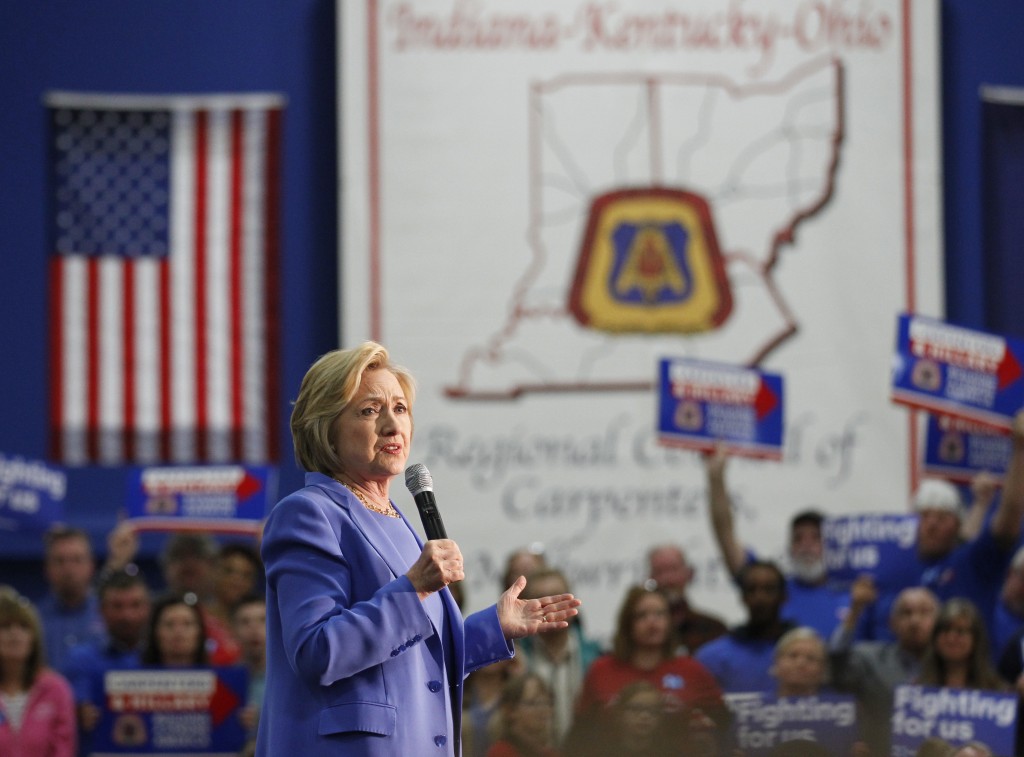
by Michael Mathes
PADUCAH , United States (AFP) — No Democratic presidential candidate has won Kentucky since 1980 except Hillary Clinton’s husband Bill, but she is treating the state as an opportunity to appeal to a demographic that has consistently snubbed her: working-class white men.
The Bluegrass State holds its Democratic primary on Tuesday, and Clinton’s rival Bernie Sanders is gunning for a victory here like his one last week in neighboring West Virginia, as he battles to keep his long-shot nomination bid alive.
The two states are linked to coal as is much of Appalachia, the largely white, long-struggling eastern US region where many feel they have been given the cold shoulder in the lukewarm recovery from the 2007-2008 financial crisis.
The Clintons have made several trips to coal country to try and contain the damage from comments Hillary made in March, when she said she aimed to “put a lot of coal companies and coal miners out of business.”
That stung for many in Appalachia in particular, and she has sought amends on the campaign trail.
“It’s important to say that there are a lot of people in our country who are feeling frustrated, they’re feeling anxious — some of them are feeling angry — that they are not yet recovered from the great recession,” she told a get-out-the-vote rally Sunday in Fort Mitchell, in northern Kentucky.
“That they’re not yet on a path that they can see will take them and their families into a more prosperous future, and I think we have to understand that.”
With the Democratic nomination in sight, Clinton is no doubt repositioning herself for a bruising general election campaign battle against Republican presumptive nominee Donald Trump.
After the better part of a year trying to win over the party’s liberal wing, she has broadened her economic message and turned to blue-collar voters.
“They’re not giving up on Kentucky — not now, not in November, not ever,” local congressman John Yarmouth, speaking of the Clintons, told a union-heavy crowd in Louisville before the former first lady spoke.
Clinton made three stops in Kentucky on Sunday, and was to make at least three more Monday.
In Fort Mitchell she noted how she has time and again pledged to help coal country.
“They made it possible for us to industrialize, to turn on the lights, to power our factories, to build the biggest economic engine and middle class the world had ever seen,” she said.
“And we can’t and we must not walk away from them.”
They see through her
Truman Burden, a 58-year-old retired pipe-fitter and a one-time coal miner, said in Louisville he hoped to steer his former colleagues away from Trump.
“What I’m trying to tell blue-collar workers is, you know where Bill Clinton and Hillary Clinton stand,” he told AFP.
“If you want to take a chance on an unknown, then you may have buyer’s remorse.”
Exit polls in several states have shown Hillary Clinton losing the white male vote by substantial numbers to Sanders.
In a November face-off, the billionaire businessman appears destined to hold an advantage over Clinton, at least initially, with working-class whites.
“They see through her,” said real estate manager Bill Dunn, speaking of blue-collar workers, as he ate dinner at a barbecue joint in Paducah, a city in southwestern Kentucky.
“They like honesty, and she’s missing that.”
Clinton’s West Virginia loss to Sanders was a sober reckoning for a candidate who crushed Obama there in 2008.
One Clinton strategy appears to be to target voters who have been turned off by Trump’s harsh rhetoric and policy positions.
“This is scary, dangerous talk. This is the talk of a loose cannon who is making statements and creating confusion,” Clinton said.
“We can’t afford that.”
For Cuban-born Lazaro Marti, a truck driver in Louisville, November will bring a tough decision.
“I don’t like Hillary but I’m afraid of Mr. Trump, so oh my God,” he said, shaking his head and acknowledging Trump’s belligerence towards immigrants.
But he said many of his white working-class acquaintances in Kentucky, whom he called “tough people,” have already circled the wagons.
“They talk about Hillary like they’re talking about the devil,” Marti said.
mlm/ch
© 1994-2016 Agence France-Presse








